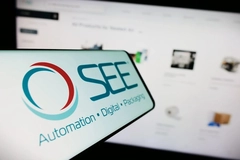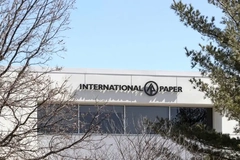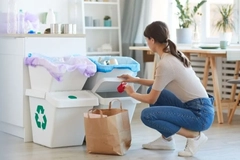Bottle4Flex joins Aimplas to develop “second skin” food packs from rPET
The Bottle4Flex project is working to develop 100% recyclable flexible “skinpack” packaging using recycled PET (rPET). The plastics technology center Aimplas is collaborating on this project with the flexible packaging film manufacturer Covinil and supermarket chain Eroski, all based in Spain.
The research project is funded by the Spanish Ministry of Science, Innovation and Universities and through the EU’s Next Generation funds within the Recovery, Transformation and Resilience Plan framework.
“Skinpack creates an invisible ‘second skin’ around the product that allows consumers to examine its quality, thus improving the shopping experience with 3D presentation and easy opening. This type of packaging is attractive to consumers due to the premium product appearance and to producers and distributors for its cost-effectiveness and flexibility,” Aimplas explains.
“However, despite its popularity and efficiency in terms of space and transport, this multilayer packaging faces serious difficulties in recycling. Through innovations in chemical recycling and polymerization technologies, the project consortium aims to overcome the challenges of recycling multilayer PET flexible packaging and promote sustainability and the efficient use of recycled materials in the food industry.”
Project aims
The Bottle4Flex project responds to Spain’s new regulations on the recyclability of packaging, resulting from the EU’s circular economy strategy, which stipulated all such packaging must be 100% recyclable by 2030.
 The project aims to overcome the challenges of recycling multilayer PET-based flexible packaging.Currently, in Spain, only rPET is authorized for post-consumer recycled content in food packaging, while flexible PET packaging cannot be recycled using conventional mechanical technologies due to its multilayer composition.
The project aims to overcome the challenges of recycling multilayer PET-based flexible packaging.Currently, in Spain, only rPET is authorized for post-consumer recycled content in food packaging, while flexible PET packaging cannot be recycled using conventional mechanical technologies due to its multilayer composition.
PET is widely used in food trays in the country but primarily for rigid packaging “due to high demand that exceeds supply.”
Aimplas says that the R&D of single-material film based on rPET is “crucial” to meeting the EU’s Circular Economy Strategy requirements.
The plastics technology center further highlights the importance of developing new recycling and circulatory systems for packaging waste while ensuring flexibility, barrier properties and heat-sealing capacity.
Bottle4Flex is focused on promoting solvolysis processes for recycling and modifying the properties of PET through partial depolymerization. It uses innovative technologies like reactive extrusion, monomers and additives to increase the flexibility of rPET.
The project aims to develop “efficient, sustainable methods” to promote plastic circularity and create new circular production models.












